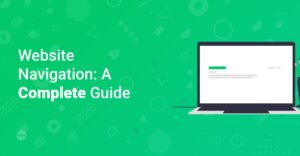Preface
WordPress is more than just a blogging platform; it’s a powerful content management system (CMS) that empowers millions of websites worldwide. Whether you’re a complete beginner eager to create your first website or an experienced developer looking to refine your skills, this comprehensive guide will provide you with the knowledge and resources you need to master WordPress. We’ll cover everything from initial setup to advanced customization, ensuring you can build, design, and manage stunning and effective websites.
Why Choose WordPress?
WordPress offers numerous advantages that make it a popular choice for website creation:
- Ease of Use: WordPress features a user-friendly interface that allows you to create and manage content without extensive technical knowledge.
- Flexibility: With thousands of themes and plugins available, WordPress can be customized to suit virtually any type of website, from personal blogs to e-commerce stores.
- SEO Friendly: WordPress is designed with SEO in mind, making it easier to optimize your website for search engines.
- Large Community: A vast community of users and developers provides ample support and resources, ensuring you can find answers to your questions and solutions to your problems.
- Cost-Effective: WordPress itself is free, and while some themes and plugins may cost money, there are plenty of free options available to get you started.
Getting Started with WordPress
Step 1: Choosing a Domain Name and Hosting Provider
Your domain name is your website’s address on the internet (e.g., startmakingwebsites.com). Your hosting provider stores your website’s files and makes them accessible to visitors. Choosing the right domain name and hosting provider is crucial for your website’s success.
- Domain Name: Select a domain name that is memorable, relevant to your brand, and easy to spell. Check if your desired domain name is available and register it through a reputable domain registrar.
- Hosting Provider: Choose a hosting provider that offers reliable service, sufficient storage space, and adequate bandwidth. Popular options include Bluehost (/go/bluehost), DreamHost (/go/dreamhost), and GoDaddy (/go/default-hosting). Consider your website’s needs and budget when selecting a hosting plan.
Hint: If you are looking for the easiest way to host your website, Bluehost is one of the easiest solutions you can find in the market.
Step 2: Installing WordPress
Most hosting providers offer a one-click WordPress installation, which makes the process straightforward. Here’s how to install WordPress using cPanel, a common hosting control panel:
- Log in to your hosting account and navigate to the cPanel.
- Look for the “WordPress” icon or a similar option under the “Software” section.
- Click on the WordPress installer and follow the on-screen instructions.
- Choose the domain where you want to install WordPress and create an administrator username and password.
- Complete the installation process.
Step 3: Navigating the WordPress Dashboard
Once WordPress is installed, you can access your website’s dashboard by adding /wp-admin to your domain name (e.g., www.yourdomain.com/wp-admin). The dashboard is your command center for managing your website. Here’s a quick overview of the key sections:
- Posts: Create and manage blog posts.
- Media: Upload and manage images, videos, and other media files.
- Pages: Create and manage static pages like “About Us” and “Contact Us.”
- Comments: Moderate and respond to comments on your posts.
- Appearance: Customize your website’s design with themes and widgets.
- Plugins: Extend your website’s functionality with plugins.
- Users: Manage user accounts and permissions.
- Settings: Configure various aspects of your website, such as the site title, permalinks, and reading settings.
Designing Your WordPress Website
Choosing a Theme
A WordPress theme controls the visual appearance of your website. Thousands of free and premium themes are available. To install a theme:
- Go to Appearance > Themes in your WordPress dashboard.
- Click on “Add New” to browse available themes or upload a theme file.
- Preview the theme and click “Install” if you like it.
- Activate the theme to apply it to your website.
Some popular WordPress themes include:
- Astra: A lightweight and highly customizable theme, known for its speed and flexibility. Check out this in-depth guide on how to install Astra starter templates.
- Neve: A fast and SEO-friendly theme, perfect for various types of websites.
- OceanWP: A versatile theme with numerous customization options and demo templates.
Info: Astra is a very popular theme, that can be extented with the [Astra Pro](/go/astra-pro) version!
Customizing Your Theme
Most themes offer customization options through the WordPress Customizer. To access the Customizer, go to Appearance > Customize in your dashboard. Here, you can modify elements such as:
- Site Identity: Change your site title, logo, and favicon (refer to this article to learn how to add a favicon to your WordPress website).
- Colors: Adjust the color scheme of your website.
- Fonts: Choose different fonts for your headings and body text. Be sure to choose the right fonts for your website and consider using some of the best Google Fonts.
- Header & Footer: Customize the header and footer areas of your website.
- Menus: Create and manage navigation menus.
- Widgets: Add and configure widgets in your website’s sidebars and footers.
Using Page Builders
Page builders are plugins that allow you to create custom page layouts with drag-and-drop functionality. They are particularly useful for creating visually appealing and unique designs without coding. Some popular page builders include:
- Elementor: A powerful and user-friendly page builder with a wide range of features and templates (Getting started with Elementor: The Complete Guide) . You can also checkout some beautiful websites built with Elementor and even more inspirations of websites made with Elementor.
- Beaver Builder: A simple and intuitive page builder with a focus on ease of use.
- Divi Builder: A visual page builder with a large library of pre-designed modules and layouts.
To use a page builder: you can find a helpful tutorial here on how to install WordPress plugins.
- Install and activate the page builder plugin.
- Create a new page or edit an existing one.
- Click on the “Edit with [Page Builder]” button.
- Use the drag-and-drop interface to add and arrange elements on your page.
Info: Read this article to learn [10 expert tips and tricks for mastering Elementor page builder](https://www.startmakingwebsites.com/10-expert-tips-and-tricks-for-mastering-elementor-page-builder/).
Essential WordPress Plugins
Plugins extend the functionality of your WordPress website. Here are some essential plugins to consider:
- Yoast SEO: Optimizes your website for search engines and improves your content’s readability.
- Akismet Anti-Spam: Protects your website from spam comments.
- Contact Form 7: Creates customizable contact forms for your website.
- WooCommerce: Adds e-commerce functionality to your website, allowing you to sell products and services online.
- UpdraftPlus: Backs up your website’s files and database, ensuring you can restore your site in case of an emergency.
You may also want to consider using AI plugins to boost your blog.
Managing Your WordPress Website
Creating Content
Creating high-quality content is essential for attracting and engaging visitors. Here are some tips for creating effective content:
- Know Your Audience: Understand your target audience and create content that addresses their needs and interests.
- Write Compelling Headlines: Use catchy and descriptive headlines that grab readers’ attention.
- Optimize for SEO: Use relevant keywords in your content and optimize your meta descriptions and title tags to improve your search engine rankings (see this quickstart guide for WordPress SEO).
- Use Visuals: Incorporate images, videos, and other visuals to break up text and make your content more engaging.
- Proofread Carefully: Before publishing, proofread your content for grammar and spelling errors.
<p class=‘SMW-hintbox’><strong>Hint:</strong> Remember to use categories and tags to organize your content. </p>
Website Security
Securing your WordPress website is crucial to protect it from hackers and malware. Here are some essential security measures:
- Use Strong Passwords: Use strong, unique passwords for your WordPress admin account and database.
- Keep WordPress Updated: Regularly update WordPress, your themes, and your plugins to patch security vulnerabilities.
- Install a Security Plugin: Use a security plugin like Wordfence or Sucuri to scan your website for malware and protect it from attacks.
- Use SSL: Install an SSL certificate to encrypt the data transmitted between your website and your visitors.
- Regular Backups: Regularly back up your website’s files and database, so you can restore your site in case of an emergency.
Website Performance Optimization
A fast-loading website provides a better user experience and can improve your search engine rankings. Here are some tips for optimizing your website’s performance:
- Choose a Fast Hosting Provider: Select a hosting provider that offers fast and reliable service.
- Use a Caching Plugin: Use a caching plugin like WP Rocket or W3 Total Cache to cache your website’s pages and reduce server load.
- Optimize Images: Compress your images to reduce their file size without sacrificing quality.
- Minimize HTTP Requests: Reduce the number of HTTP requests by combining CSS and JavaScript files and using CSS sprites.
- Use a Content Delivery Network (CDN): Use a CDN like Cloudflare to distribute your website’s content across multiple servers, reducing latency and improving loading times.
Conclusion
Mastering WordPress is an ongoing journey, but with the knowledge and resources provided in this guide, you’re well-equipped to build, design, and manage stunning and effective websites. Whether you’re a beginner or an advanced user, remember to stay curious, keep learning, and explore the endless possibilities that WordPress offers. Embrace the power of this versatile platform and start creating the website of your dreams today!



